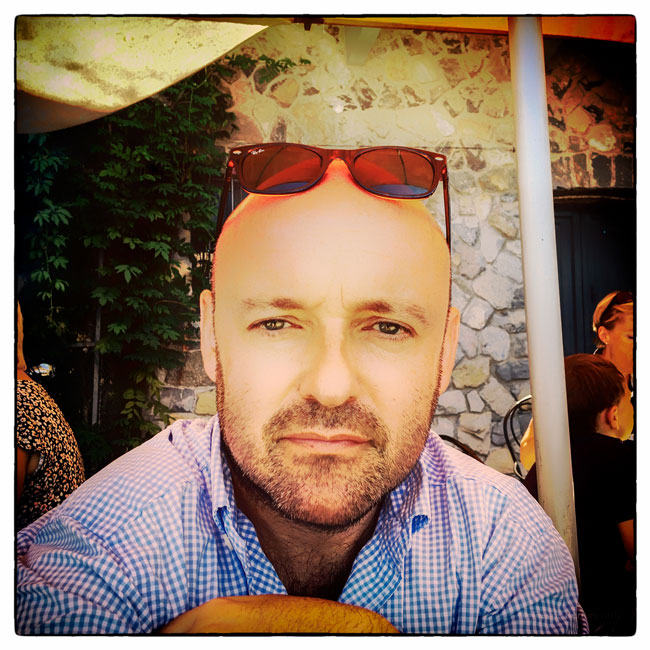
The Lorne Trottier Public Science Symposium is an annual event focusing on a topic of scientific interest for the public and is generously sponsored by the Trottier Family Foundation. This year’s Trottier Symposium (Oct. 17-18), entitled Science and the Media: the challenge of reporting science responsibly will explore how well the media reports on science and how journalists counter the rising tide of pseudoscience.
Trevor Butterworth, is Director of Sense About Science USA, an organization that advocates for the public interest in sound science and evidence as the basis for informed decision-making and political engagement. Butterworth will deliver his Trottier Symposium lecture, “Facts, fiction, and science: when the lines become blurred,” on Tuesday, Oct. 18 at 5:30 p.m. at the Centre Mont-Royal.
In advance of his lecture, Butterworth spoke with the McGill Reporter.
Teachers require a teaching degree, dentists require a dental degree; should a degree in science journalism be a requirement for newspaper science reporters?
Do we require reporters covering politics to have a degree in political science? The person who writes the gardening column to have a degree in botany? Do journalists need a journalism degree? I don’t believe in such legislation. I think we all need to understand what makes good evidence good – how to get it and where to find it. Science is not a house of facts you occupy, but a method you use to build a house. This has to be a core literacy for everyone. That being said, there are many excellent programs that give either scientists or non-scientists training in science reporting and writing – and the ethics of journalism. You can’t argue that more of this wouldn’t be better.
How has the Internet affected the public’s scientific literacy?
It’s difficult to resist the cliché that the Internet is a blessing and a curse. The Internet has produced a wave of innovation in science communication, education, journalism, and writing. Look at Aeon, Nautilus, The Conversation – and the much needed increase in analytic reporting from places like FiveThirtyEight, STAT News, and Vox. As we see from our statistical literacy project with the American Statistical Association, there is an eagerness to interrogate and hold data accountable in journalism that barely existed five, let alone ten or twenty years ago. The difference is that with so much media, the idea of a national conversation in which a hierarchy of news sources can control or “gatekeep” information has gone. For many, this is appalling: we are floundering in a sea of dreck; misleading information has the power to radiate stupidity forever. Yet, I think, all is not quite so bleak: the media world we’ve left behind did a lot of damage to science too – and it was damage that was almost impossible to challenge precisely because getting past the gatekeepers was so difficult. Our new marketplace of ideas is much more democratic, but this democracy of information demands data and media literacies and new ways to talk about evidence and trust: these are what we are focusing on at Sense About Science USA.
Why is it that bloggers with no scientific background, like the “Food Babe,” amass huge numbers of followers?
Define “huge.” The Food Babe has around a hundred thousand followers on Twitter; NASA has over eighteen million.
People have been arguing over food and diet since classical Greece and, doubtlessly, much earlier. When you look at symbolic anthropology, you see food surrounded by ideas of purity and pollution. The Food Babe is simply the latest manifestation of the need to proscribe and prohibit what we eat on those grounds. The moral ground is high – and connects with our emotional relationship to food and feelings about alienating practices of modernity, which have been fed by art and philosophy, high and pop culture. The scientific foundations to what she says are non-existent, but she is not connecting to people on those foundations. “Science” is simply a rhetorical stand in for “unnatural,” and “impure.” There shouldn’t be “science” in my food. This is enormously frustrating for those who think scientifically and who understand that if we are to feed 8 billion people, we need science in our food. But science is losing this communication battle. We need a lot more research into the science of communicating science. We also need to rethink how we teach science given that so few people seem to understand the scientific method.
Have you been attacked by people or companies who have taken issue with something that you produced?
Yes – it’s unavoidable if you write critically. In Justice is Conflict, the philosopher Stuart Hampshire wrote that the principle of rationality (reasoning pro and contra) was aligned with the principle of justice: hear both sides. The only way science advances is if we have the kind of procedural justice which allows us to reason pro and contra. Of course, this requires a certain amount of good faith in a dispute: that you bring your best arguments and evidence and that you are interested in the truth rather than winning at all costs. Unfortunately, in journalism and science and policy and advocacy that philosophical commitment to evidence is often absent.
The 2016 Lorne Trottier Public Science Symposium, Science and the Media: The challenge of reporting science responsibly, will be held on Oct. 17 – 18. For more information, please visit the Trottier Symposium website.
Read how the same questions were answered by the Symposium’s other panelists: CBC’s Erica Johnson; Vox.com’s Julia Belluz; and The Washington Post’s Joel Achenbach.

I think Critical Thinking should be taught as well as science literacy. I didnt learn critical thinking at all till university, and I believed evetuthing I was taught and read in textbooks.